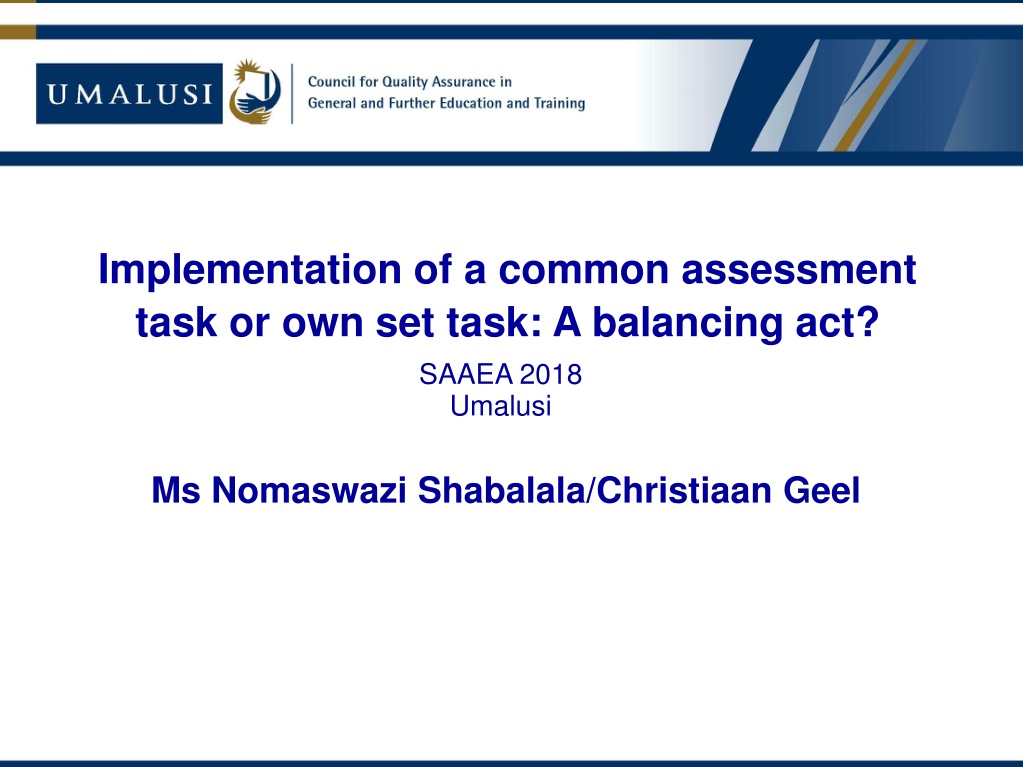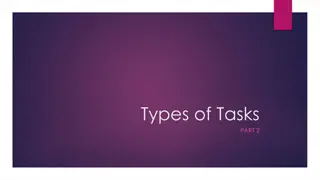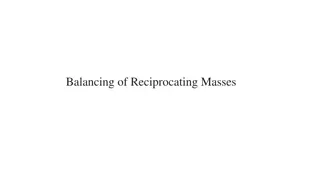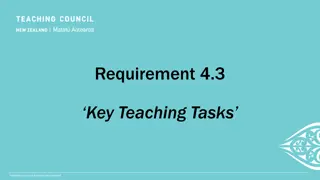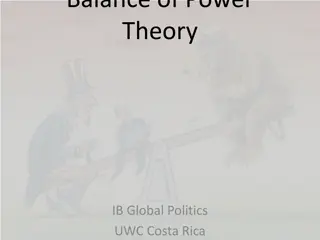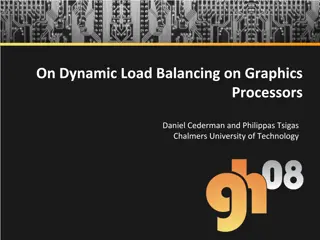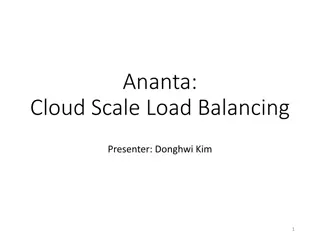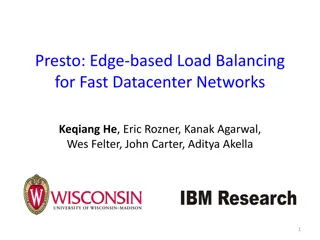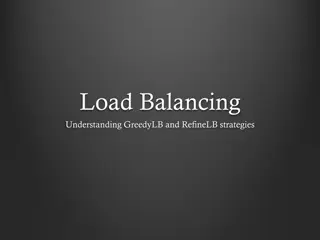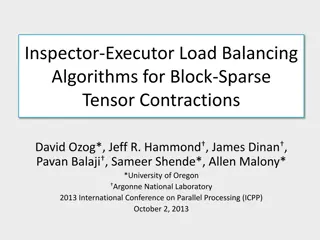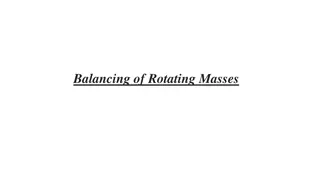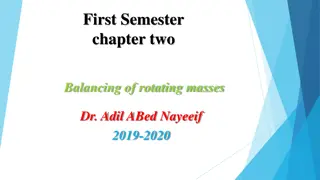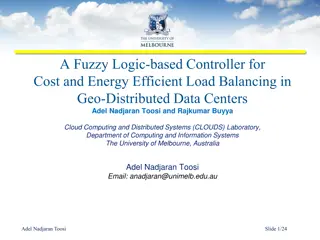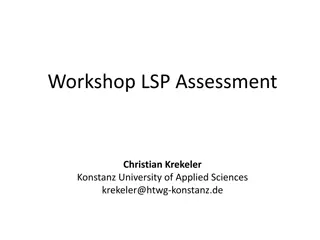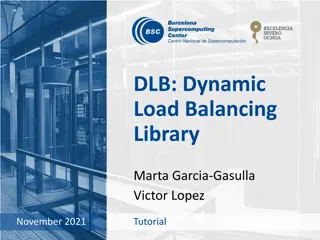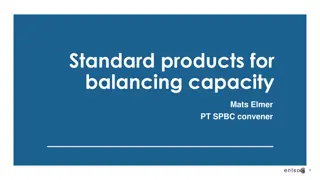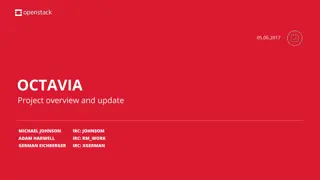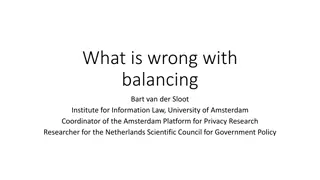The Balancing Act of Implementing Common Assessment Tasks
Exploring the implementation challenges of common assessment tasks versus setting own tasks in the context of school-based assessments. The study delves into the quality assurance processes, governance of education, and the implications of current practices on teacher involvement and task quality.
Download Presentation

Please find below an Image/Link to download the presentation.
The content on the website is provided AS IS for your information and personal use only. It may not be sold, licensed, or shared on other websites without obtaining consent from the author.If you encounter any issues during the download, it is possible that the publisher has removed the file from their server.
You are allowed to download the files provided on this website for personal or commercial use, subject to the condition that they are used lawfully. All files are the property of their respective owners.
The content on the website is provided AS IS for your information and personal use only. It may not be sold, licensed, or shared on other websites without obtaining consent from the author.
E N D
Presentation Transcript
Implementation of a common assessment task or own set task: A balancing act? SAAEA 2018 Umalusi Ms Nomaswazi Shabalala/Christiaan Geel
Outline of the presentation Quality Assurance of Assessment-School Qualifications Unit (QAA-SQ)-Schools sub-unit processes Introduction of study-Governance of education Problem Statement Research purpose and question Theoretical framing Methodology Findings Discussion of findings Conclusion
QAA-SQ: Schools Sub-unit Processes: Moderation of exam papers Moderation of school based /internal assessment Monitoring the conduct of examinations Verification of marking Standardization of assessment outcomes
Introduction of the current study School based assessment (SBA) is a component of the National Curriculum counts for 25% of the final NSC subject mark for subjects without a Practical Assessment Task (PAT) Statement (NCS) which - 50% for subjects with PAT;100% for Life Orientation administered by schools. Ideally the SBA is set at school level Umalusi conduct SBA moderation in all 9 provinces Umalusi moderators noted that most schools are administering tasks that are commonly set at provincial/district level
Governance of education THE PRESIDENCY Department of Basic Education(DBE) 9 Provincial Education Departments(PEDs) Districts Circuits Schools
Problem statement Common SBA tasks administered are mostly of good quality Such tasks are set mostly by subject advisers in provinces/districts. The practice is deemed good because it maintains standards across districts and provinces. However, the downside to this is that less subject teachers in schools are involved or exposed to this practice and are finding it difficult to set own quality tasks, in some cases, because they rely so much on these tasks.
Research purpose and question The purpose of this research is to investigate if teachers prefer to administer assessment tasks or own tasks. to strike a balance assessment tasks and own tasks? commonly set How between a common
Literature Review Assessment tasks set by a teacher for a particular group of learners can be better contextualized than can tasks set for a national pool of learners (Cohen, 2009). A key component of successful school-based assessment is teacher expertise (Maxwell, 2006). School-based assessment is important and should be carried (Singh,2002). out by teachers.
Theoretical framing The study is grounded in constructivism theory Knowledge is always constructed and negotiated (Larochelle, Bednarz & Garris, 1998). Ideas are constructed based on past or current knowledge. Encourages greater participation (Brandon & Anita, 2010). Challenges centralisation of knowledge, thus, affirming that there are multiple realities.
Methodology Survey conducted in two Provinces: Kwa Zulu Natal and Gauteng Semi- structured and structured questions Survey done through emailing(Hesse-Biber, 2016; Merriam, 2002 found this to be convenient) Convenience sampling- questionnaire sent to 40 high school teachers: rural, semi urban & urban 30 responded Sample size too small for generalisation the study will be extended further
Findings N % 20% 26-30 6 10% 31-35 3 3% 36-40 1 10% 41-45 3 20% 46-50 6 20% 51-55 6 13% 56-60 4 3% 61+ 1 100 Total 30 Percentages of participants according to age group T113/o31133
Findings Current % of teachers administering common SBA tasks geographically All teachers from rural and semi-urban areas indicated that they administer commonly set tasks 75% urban schools administer common SBA tasks 25% of urban teachers reported that they administer own tasks
Findings 92% Gauteng teachers prefers to conduct own tasks 8% prefers common tasks 65% of Kwa Zulu Natal teachers prefers common SBA tasks 29% prefers own tasks 6% who prefers both.
Findings Gauteng Reasons given by 92% from GP preferring own tasks: . to develop the skill of setting quality tasks that are of high standard Will be able to focus on weaker learners to prioritise support Some respondents just indicated Own Tasks without giving reasons Head
Findings KwaZulu Natal Reasons given by 65% from KZN preferring common tasks: assist teachers to adhere to content coverage . prepares learners for the final examinations Identification of problematic areas and prioritise them. saves time, teachers can concentrate on teaching. promote critical thinking and covers all cognitive levels.
Findings KwaZulu Natal Current trend: teachers-provided with subject disks(tasks & MG) at the beginning of the year. . subject advisers form SBA tasks development teams in province/districts. teachers are not aware who is setting the tasks.
Discussion of findings Teachers ensures that the common SBA tasks are written under strict supervision and marked properly. Most teachers commented to have not been involved in setting tasks for a long time. Although teachers agree that the common SBA tasks are of good quality and maintains standards across provinces and districts, some participants still prefer to be involved in setting their own tasks.
Conclusion Constructivists purports that teachers must be encouraged to be active constructors of their own test items. Teachers must be encouraged to share various perspectives with their community of practice to lessen their anxiety and improve the quality of SBA tasks. The department as the facilitator and the teachers should engage in active dialogue, with the former recognising the potential in teachers They must be allowed to make decisions, rather than mainly using tests provided by the authorities for School-based assessment Expertise in question paper development can only be developed through active participation
Conclusions Teachers to be encouraged to set cluster tasks, which will be moderated at District /Provincial level, to maintain standard
